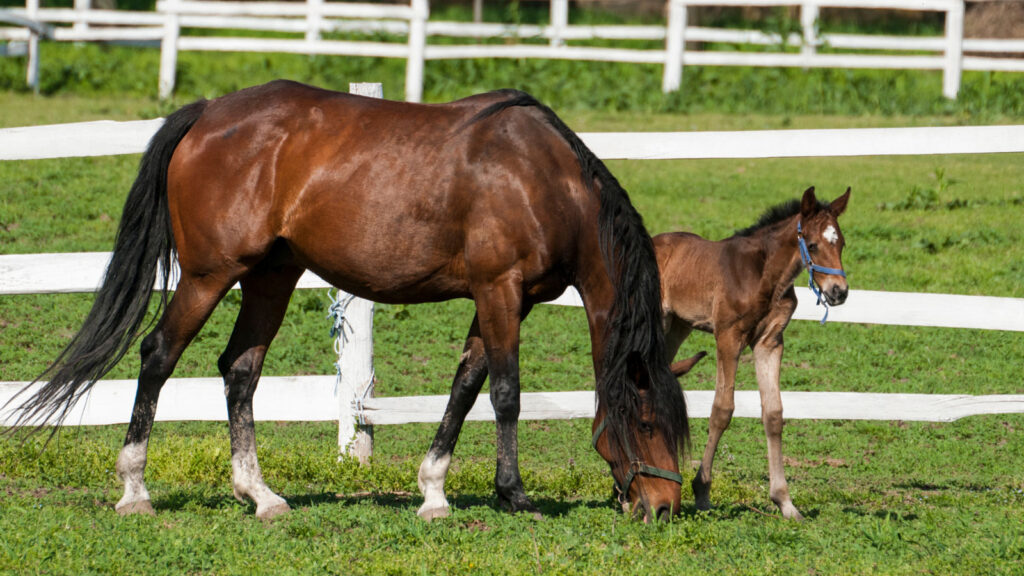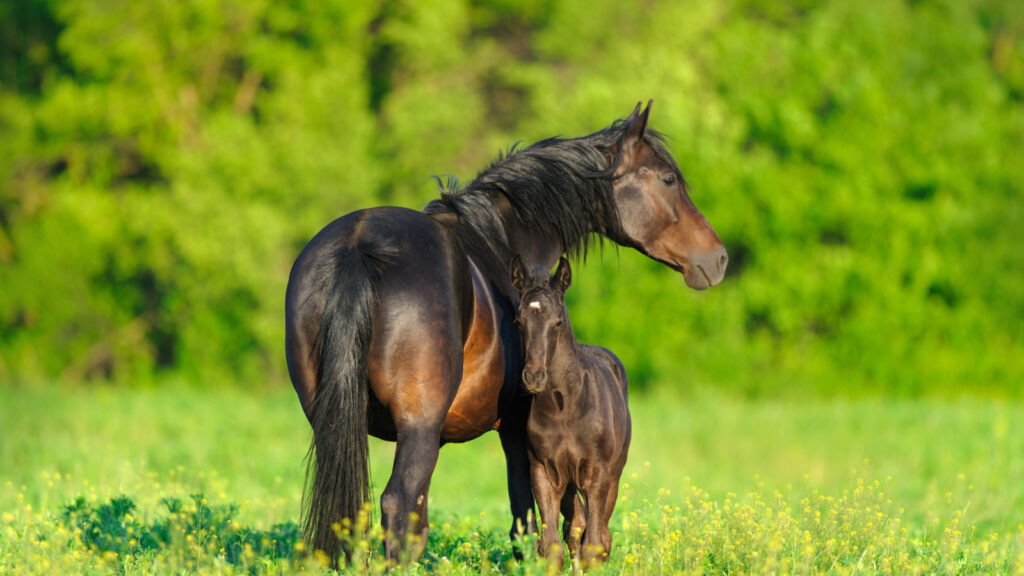With advancing technology, it’s possible to HAVE THE FOAL YOU WANT without the stress or risks of breeding your mare.

Do you have a special mare you would love to have a foal, but she has a full competition schedule? Would you prefer to avoid the risks associated with an older mare delivering a foal? Veterinary medicine and technology have developed new techniques allowing superior equine genetics to continue without interrupting showing or putting stress on an older mare. Equine reproduction specialists are having more and more success with embryo transfer and intracytoplasmic sperm injection (ICSI).
The embryo transfer process begins by breeding a stallion to a donor mare and then transferring the resulting embryo into a reproductively sound recipient mare, which carries the foal to term and nurses it until weaning.
On day 7 or 8, embryo collection takes place using gentle non-surgical techniques, and if an embryo is recovered, it is promptly prepared for transfer into the recipient mare. Usually, the transfer process is managed with your veterinarian and the recipient herd manager to ensure your recipient mare’s body is at the same place in her ovulation cycle as the donor mare. When techniques are processed correctly, the results are an embryo recovery rate of approximately 75%.
Another procedure to consider is ICSI. Unlike embryo transfer, the donor mare is not traditionally bred. Oocytes (eggs) are harvested from the donor mare, and a stallion’s spermatozoa are collected and injected directly into the oocyte from the donor mare. The egg and sperm are then cultured via “in vitro incubation” or maturation of an embryo in an incubator. Once that embryo develops for seven or eight days, it is transferred to a surrogate/recipient mare who carries that pregnancy and gives birth to that foal. ICSI is an excellent option, too, if a breeder would like to freeze embryos to have future foals.
The equine industry typically uses embryo transfer and ICSI to produce foals from mares with limited reproductive capacity (mares with unclear fertility issues or simply older mares) or performance mares that need to remain non-pregnant in order to continue their training and competition schedules.

Many breed registries permit the registration of embryo-transfer-born foals, and a growing number of breed associations now allow the registration of multiple foals born in the same year. Numerous breeders have produced multiple foals from a single donor mare during a breeding season due to the breed registries’ relatively recent increase in recognition of these animals.
Both procedures allow for a reproductively sound mare to carry and care for a foal while allowing the donor mare to continue showing or avoiding pregnancy.
To read our entire September/October 2023 issue, click here.

